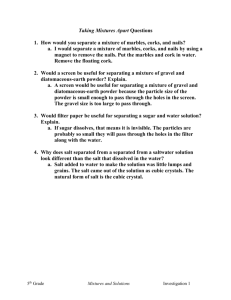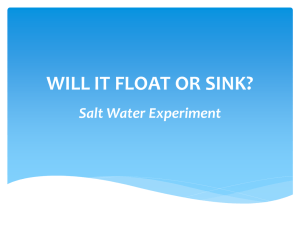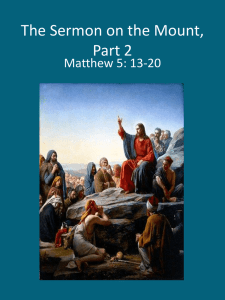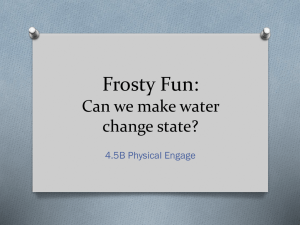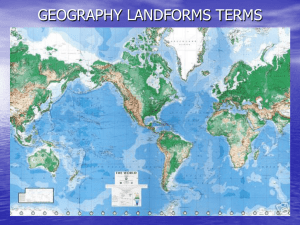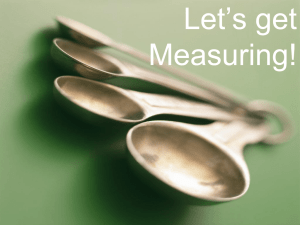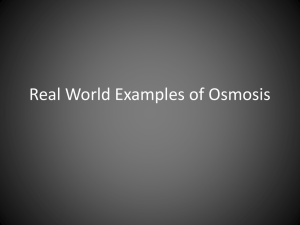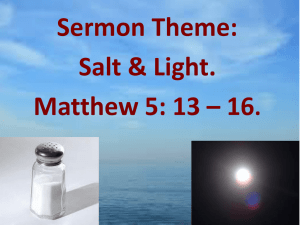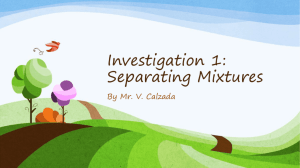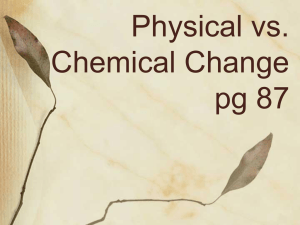Making and Separating Mixtures
advertisement
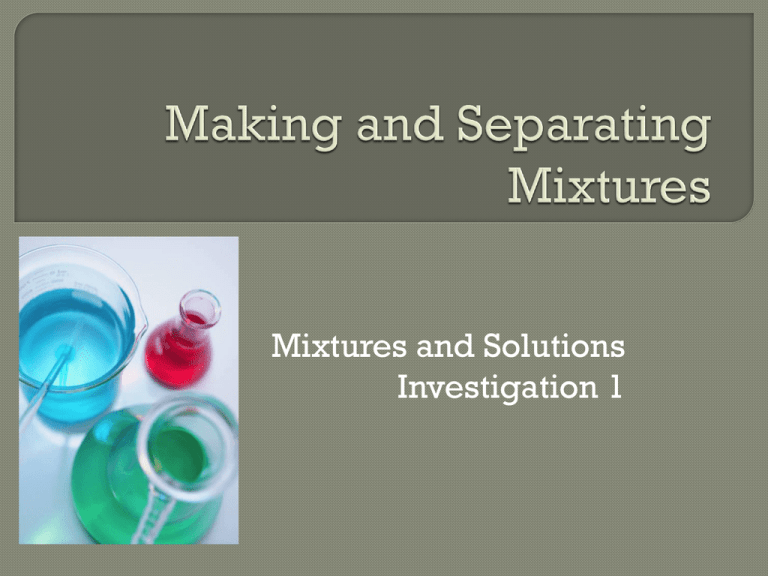
Mixtures and Solutions Investigation 1 What is a mixture? What is a solution? What is the difference b/t a mixture and solution? Our first investigation is figuring out what a mixture is and what a solution is… What are steps you can use to solve a problem, a scientific or math problem? We just say in this class… Quincy Heard My Parrot Talk and Cackle What do you think that sentence might actually mean? How do you separate a mixture? Hypothesis • List different ways you can separate a mixture. • Use bullets to separate your ideas • Add others ideas to your list This powder stuff is the skeletal remains of aquatic organisms called diatoms. These are pictures of diatoms. They are small critters with “glass houses”. Gravel Diatomaceous earth (powder) Salt (sodium chloride) Hand lenses Cups Sticky notes Syringe Craft sticks Water Paper towels What are does the word property mean when you are observing a substance? A property is List several properties of each of the three substances. Use bullets Use your hand lenses 1. 2. 3. 4. 5. 6. 7. 8. Label the cups, G, P, and S. Put one level spoon of gravel in the G cup Put one level spoon of powder in the P cup Put one level spoon of salt in the S cup Observe the materials and record your observations in the chart. Add 50 ml of water to each cup. Stir the contents of each cup with the stick. Observe what happens and record. Label a second set of cups, G, P and S Your goals is to is to separate the mixtures so that the water is in one cup and the material is in another. 9. Use the screen and the filter paper to see if you can separate the mixtures. 10. Write no or yes in the box if it works. The screen is pretty simple to figure out. To make the filter work without making a huge mess, fold the paper into fourths, then open it to make a cone filter. Put the saltwater solution on a window sill, write your names on the cup Please rinse out and dry all the materials. Put all the materials back in your tub Clean and dry your table Put your journals away. Answer the questions on the back of your lab sheet for the next class period. Mixture – when you put two or more materials together. What are everyday mixtures you use? Brainstorm with your table and write your ideas in your journal. Thinking of these three mixtures, how do you think you can separate them? List each mixture and how you plan to separate the parts in your journal. Which mixture was separated by the paper filter? How are a screen and a paper filter similar? How are they different? Question: How can you separate salt and water when in a solution? Hypothesis: Write your hypothesis in your journal. Will a solution made with 50 ml of water and a spoon of salt have the same mass as 50 ml of plain water? More mass? Less mass? How can we find out? Craft stick 2 plastic cups 2 evaporating dishes 1 container ½ liter 1 syringe Water Electronic Scale or TBB 1 The weight of the salt w/o water is ______ grams. The weight of the water w/o salt is ______ grams The weight of the water and salt is ______ grams How can you determine the number of grams of salt you put in the water to make the solution. • You separated the gravel from the water and the powder from the water with filters. • How can you separate the salt from the water? • How can you get the salt back so you can reuse it? • How could you separate the salt from the water? Let’s try it! If the solid material in a mixture seems to disappear in a liquid, and the mixture can’t be separated from the water with a filter, it is a special kind of mixture, called a solution. Salt disappears or dissolves in water to make a saltwater solution. Salt is otherwise known as sodium chloride. Crystal – the solid form of a materials that can be identified by its properties, such as shape, color, and pattern. Notice that all the salt crystals are _______. Mixture – two or more materials stirred together Property – is a characteristic of an object, something you can observe such as size, color, shape, or texture Solution – is a special mixture formed when a material dissolves in water Dissolve – a process in which one materials disperses uniformly into another material, so that the first material seems to disappear What happened when the saltwater solution evaporated? What is the material in the dish? What happened to the water that was in the mixture? Does the salt look the same as it did originally? Draw a sketch of what the crystals look like in your journal – draw a circle and then the crystals. Use your hand lens, and then check them out under the dissecting microscope. How would you separate • Gravel and water? • Powder and water? • Salt and water? Evaporation – when a liquid turns to a gas by adding energy. The liquid disperses in the air leaving any dissolved material behind. Crystal – the solid form of a material that can be identified by its properties, such as shape, color and pattern. Question: How can you separate a dry mixture? We are going to mix the salt, gravel, and powder in a cup – how can you separate them? Hypothesis: Write yours down in your journal. 1 spoon salt 1 spoon gravel 1 spoon diatomaceous earth Screen Funnel Filter paper Cups Craft sticks Evaporating dishes Hand lenses Spoons Syringes Water Paper towels tape •Work with your table to come up with a set of procedures to separate everything out •Write your procedures for separating the mixtures so that the salt is in one cup, the gravel is in a second cup, and the DE is in another cup • Write your procedures using numbers, 1 and 2 and so forth… Did you do it? Write down a summary of how you managed to separate the mixtures. This is called the conclusion. What would you do differently next time to make the experiment work better? Is there anything you would change?
